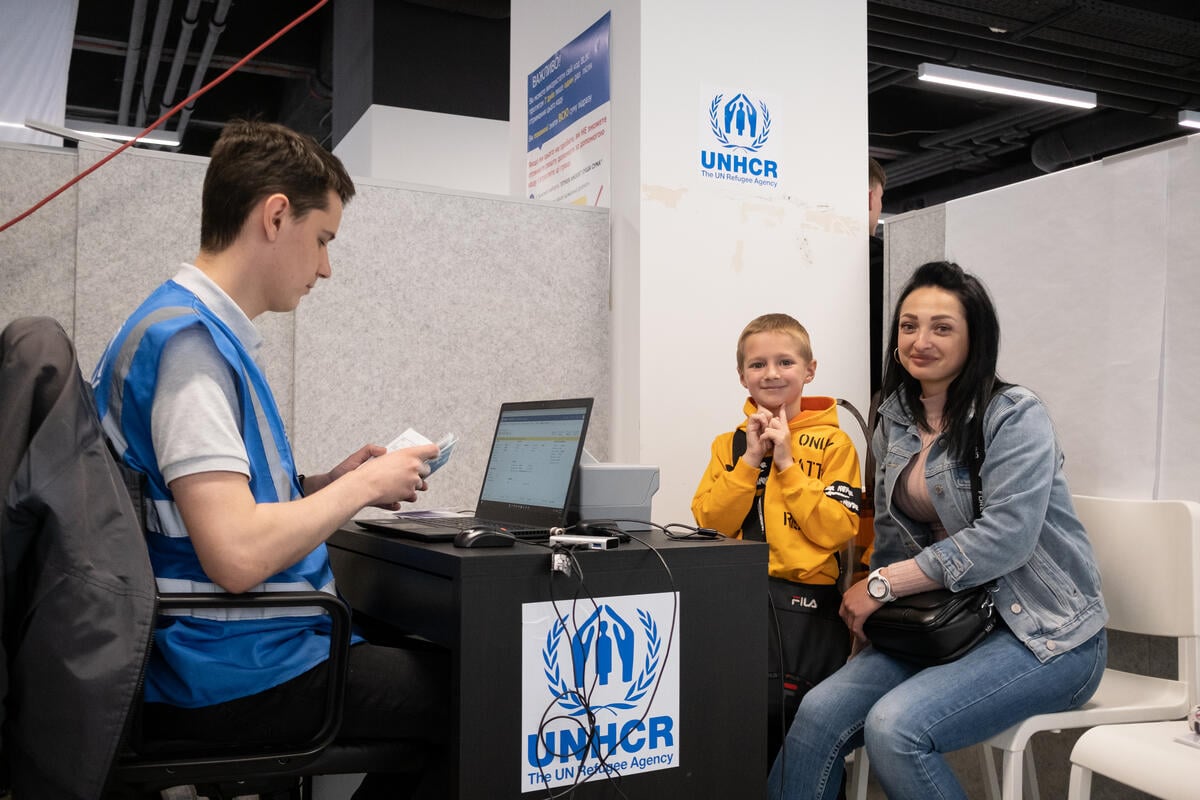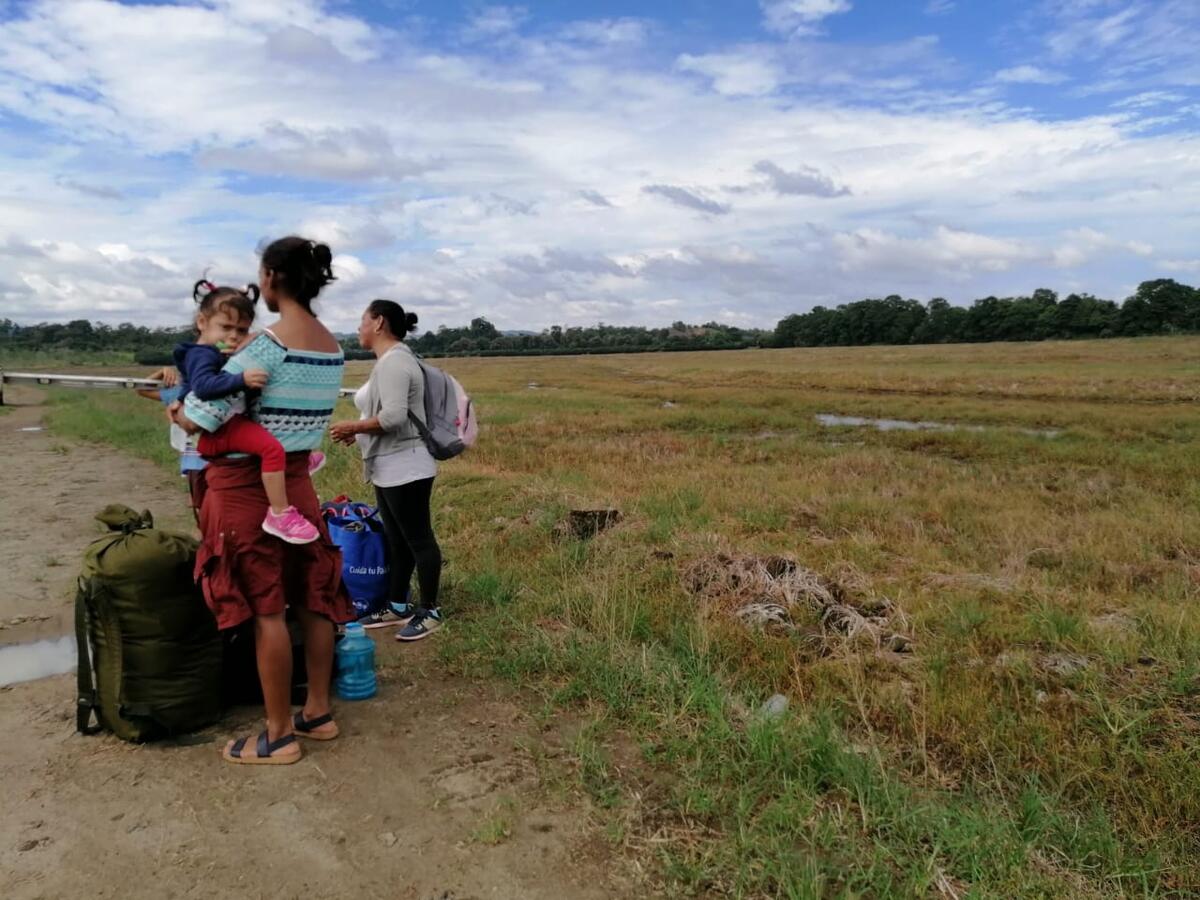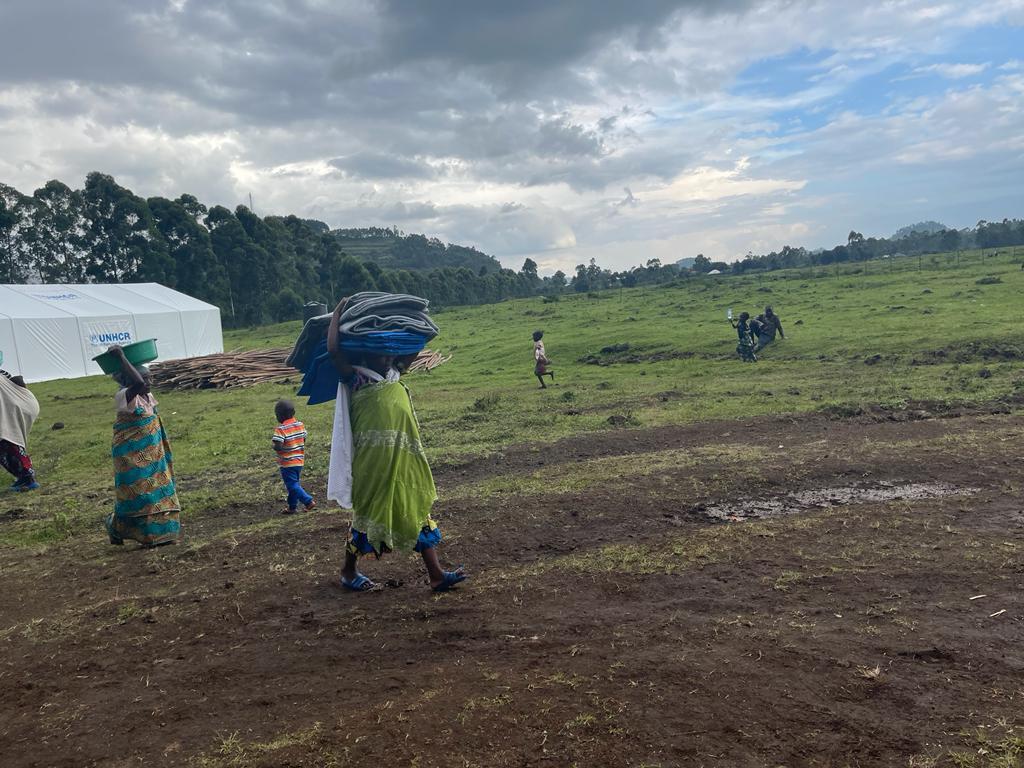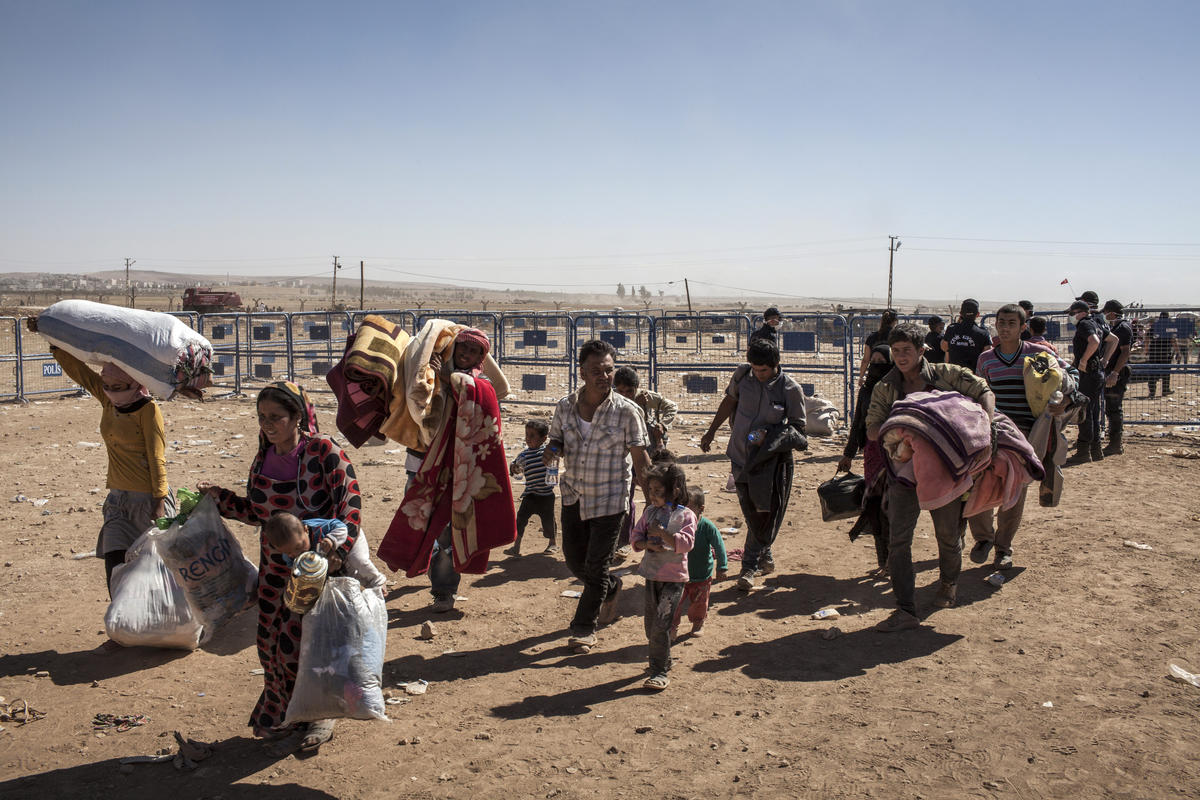How a man from Darfur cannot get his asylum claim heard in Europe today
How a man from Darfur cannot get his asylum claim heard in Europe today

ATHENS, Greece, December 6 (UNHCR) - Mohammad* is from war-torn Darfur, often described as the scene of some of the worst violence in the world over the past two years.
Hundreds of villages have been destroyed, hundreds of thousands of people have been killed or injured, or have died of illness and disease linked to the fighting and scorched earth tactics of the infamous janjaweed militia. Large numbers of women and girls are believed to have been raped. More than 2 million people have been displaced. War crimes and crimes against humanity are widely believed to have been committed.
Enough for an asylum claim by someone from Darfur to be taken seriously, one would think.
At the end of May 2005 this year, after considerable lobbying and court appeals by the Greek Council for Refugees and Amnesty International, Mohammad was released from his third spell of detention in Greece. Yet he is still no closer to having his claim to be a refugee properly examined, let alone be recognized as one.
His asylum procedure was interrupted on a technicality, and since then the interlocking cogs of European Union law and Greek national law have combined to make it possible that Mohammad's case will never be heard, no matter who he is, or where he is from, or how solid his claim to be a refugee may be - unless reason prevails, and last-gasp efforts by human rights NGOs bear fruit.
Mohammad has also been in detention in the United Kingdom. In all, he has spent around half of his stay in Europe in detention. His crime? Apparently nothing beyond the fact that he tried to seek protection in Europe, and that - like many other asylum seekers - he did not fully understand the enormously complex web of legislation both at the national and the EU levels.
The 45-year-old Sudanese fled from his village in North Darfur in 2003, a few months after the vicious civil war got underway. He was forced to leave his wife and five young children behind. Unlike many asylum seekers, who can have great difficulty proving the basic facts of their lives to sceptical immigration officials and asylum adjudicators, Mohammad has what appears to be strong documentary proof that he is who he says he is, and that he comes from Darfur.
A UNHCR staff member who visited him during his most recent period of detention in April 2005 said he was extraordinarily calm, almost serene, during most of the interview. However, when asked about the situation back home, his eyes filled with tears.
"When my village was attacked, many members of my family were killed," he said in a low voice. "All the men and boys over 11 years old were hanged." Since his escape, Mohammad has received little information about his family's fate. He believes - hopes - they are living in one of the sprawling camps scattered across Darfur.
Mohammad's story is a familiar one that can be heard - alongside ghastly tales of widespread rape and other atrocities - from many of the 1.8 million displaced people inside Darfur, or the more than 200,000 living as refugees across the border in Chad. However, as is quite often the case in the first few years of a big refugee crisis taking place a long way away, relatively few people from Darfur have so far managed to escape to Europe.
After several weeks travelling by land and sea, Mohammad reached Leros, a Greek island in the eastern Aegean Sea, in June 2003. Since he had arrived in Greece "illegally," he was - like most others who arrive in a similar manner - arrested and placed in detention. Not surprisingly, he says he was very afraid during this period. Initially, he claims, no one informed him about his rights and he did not know how to apply for asylum. He was subsequently able to do so, and obtained the relevant documentation. After three months - the standard period of detention for new arrivals - he was allowed out and left Leros for the mainland.
"After I was released from detention, I spent two weeks homeless," he remembers. "I was sleeping in Omonia, [a central square in Athens], in the open. I had nothing. No work and no place to go. I didn't know what to do, so I decided to leave Greece."
Unfamiliar with the asylum procedure in Greece and often lacking accommodation or other support, many asylum seekers leave the country in search of protection and assistance elsewhere in Europe. It is a similar story in Italy, where assistance is only given for the first 45 days, but the asylum procedure can take over a year.
"I didn't know anything about the asylum procedure, so I followed the advice of a friend to go to the UK, where things would be better," says Mohammad. He managed to reach the UK, where once again he applied for asylum.
However, the Eurodac fingerprinting database launched in September 2003 to reduce so-called "asylum shopping" revealed - as it is supposed to do - that he had previously applied for asylum in Greece.
Mohammad was therefore arrested and detained for around six months in the UK, until the procedures for returning him to Greece - the country responsible for dealing with his claim - were sorted out in accordance with the Dublin II Regulation. This important piece of EU legislation was adopted in February 2003 and, with the help of Eurodac, assigns clear responsibility to one EU country for hearing an asylum claim (usually the country where the first application was made).
In 2004, Greece received over 1,300 requests to take back asylum seekers who had applied for asylum first in Greece before moving on to other EU countries and trying again. Asylum seekers who are returned from other EU countries often find that the examination of their claim was interrupted and therefore, under Greek law, will not be resumed.
This is precisely what happened to Mohammad: upon his return to Greece in June 2004, he was informed that, as a result of his "unauthorized" departure, examination of his claim had been interrupted and it was not possible to pursue it any further. He was detained for another three months, then released and told to leave the country within a month.
In August 2004, the International Secretariat of Amnesty International sent a letter to the Minister of Public Order, Mr Georgios Voulgarakis, which stated that - in Amnesty's view - Mohammad is a refugee, adding that his forcible return to Sudan would violate the principle of non-refoulement. According to Amnesty International's office in Athens, no reply was received.
On 5 March 2005, Mohammad was again arrested and detained because he had violated the previous order to depart by the end of June 2004. This time his lawyers appealed to the highest administrative court, the Council of State.
"The situation is desperate. The cases of persons who are in the same situation [as Mohammad] are many, and we are simply too few to be able to assist them all," said Spyros Koulocheris, Attorney-at-law and Co-ordinator of the Legal Assistance Unit of the Greek Council for Refugees.
This case is especially troubling for refugee advocates. In essence, it shows the extent to which European countries - both individually and collectively at the EU level - may have sacrificed protection safeguards in their efforts to restrict access and reduce numbers. A refugee can make an asylum claim in one EU country; move on to another EU country for quite understandable (if technically irregular) reasons; be returned perfectly legally under an EU Regulation to the country where the first asylum claim was lodged; and then - also perfectly correctly under that country's national law - not have his or her original claim heard at all.
"We should stress that it is not only Greece where this Kafkaesque situation can occur," said UNHCR's Representative in Brussels, Judith Kumin. "There are other countries in Europe where this seems also to be happening, or could happen if formal requirements - for example deadlines to apply for asylum - are not met."
The Dublin II Regulation was designed for a Europe where asylum laws and practices are truly harmonized, Kumin pointed out. "Unfortunately, we are still a long way from that goal," she said. "But there must be something seriously wrong when the whole world is focused on the tragedy of Darfur and an asylum seeker from Darfur cannot get his case heard."
On 21 September, Mohammad's precarious position in Greece improved slightly, when the Council of State issued an interim decision that eased some of the daily difficulties he faces. The Committee took the important step of prohibiting the authorities from deporting Mohammad until the Court takes its final decision as to whether his asylum claim should indeed by reviewed on its merits by the Greek authorities. It also ordered that his pink card - which gives the right to receive free medical care and the right to look for employment - be returned to him. And it ordered the state to pay his legal expenses.
However, until the Court takes its final decision - which could take up to three years - this particular man from Darfur will continue to inhabit one of the cracks in Europe's asylum system.
"I only want asylum," he said, when discussing one of the many twists and turns in his case with UNHCR staff.
By Ketty Kehayioylou with Haris Desinioti in Athens, Greece
* Mohammad's name has been changed to protect his identity.








